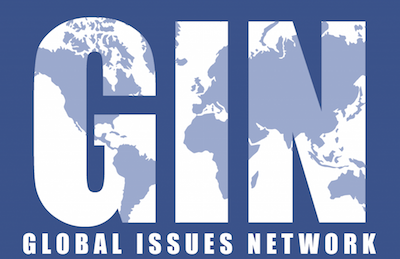Excerpt From: Rischard, Jean-Francois.
“High Noon: 20 Global Problems, 20 Years To Solve Them.” iBooks.
“One in six adults on the planet cannot read or write. Some 600 million women and 300 million men, 99 percent of them in the developing countries, remain illiterate. Some 115 million children between six and eleven—one in five—are not in school. Of those who go to school, one in four drops out before completing five years of basic education—when research shows that adults with less than five to six years of education remain non-numerate and functionally illiterate. South Asia, Africa, and the Middle East are the three regions where these problems are most severe.
Moreover, throughout the developing world, the quality of primary, secondary, and university education is rarely up to the standards required by the new world economy. And globally, we’re far away from seeing the emergence of a badly needed system of international accreditation.
Why is education a global issue when so much of it happens locally, and when the main problems are concentrated in the developing world? The answer is fourfold:
Education is central to the construction of genuinely democratic societies. Even from a moral standpoint, one could argue that education is a kind of universal right because it provides “human capabilities,” in the words of economist Amartya Sen-the-essential and individual power to reflect, make choices, and steer towards a better life.
Education is key to building the sense of global citizenship that global problem-solving requires global problem-solving requires—as Part Three will hint at. And it is a major tool for developing a sense of shared global values that may help spare the next generations unnecessary, obsolete tensions between civilizations.
Education is one of the most powerful instruments for reducing poverty and inequality and for laying the basis for sustainable growth. It has strong links not just to productivity growth but to improved health, to the ability to understand the need to care for the natural environment, and even to population stabilization. Girls’ education, for example, brings one of the highest returns known in the field of economic development. So education, like poverty, is an “underlier” issue par excellence, and both are strongly linked. Other global issues will be easier to solve if education is successfully tackled at a global scale.
Finally, the new world economy, with its knowledge intensity, requires a leap forward in each country’s education effort—from primary to higher education, and even to lifelong learning and the accreditation of competencies. If that does not happen in a very large number of countries, expect even greater inequalities between countries over the decades to come. Research shows that until a country’s population reaches a threshold of about six years of schooling on average, it remains trapped in a low-return economy prone to bad governance—and the new world economy is sure to bump this threshold up some more over the next twenty years. Globally, education can either be a great equalizer or a great divider.
So what’s to be done? An agenda to deliver global education for all would include several items.
A first urgent global task is to help build or rebuild basic education worldwide. Except in two regions, Central Asia and West Africa, the average share of primary education in national budgets has increased over the past two decades. Yet there is much unfinished business. In the developing world, the quality of basic education is often very low due to the lack of adequate facilities, competent teachers, textbooks, parental support, and community involvement. Even where enrollment numbers are good, dropout and class repetition rates are often very high.
More resources are thus urgently required to boost both the quantity and quality of basic education in the developing world. How much would that cost? Not much from a global standpoint: some $10–15 billion a year for basic education. But much of this must come from official aid. School fees are not a good idea. And government budgets cannot handle the step-up alone: in Nepal, to take an example, it would mean increasing educational expenses from 13 percent to 17 percent of an already tight national budget.
But strengthening basic education globally (often referred to under an “education for all” label narrower than the one I am using here) is just the first critical step. The broader strategy calls for helping as many countries as possible raise the game of their entire education system, all the way up to secondary and university education, to meet the demands of the new world economy. An international effort on this would pay off tremendously in fighting global poverty and increasing disparities. On average, one more year of basic education buys an increase in a country’s growth rate of 0.4 percent, but one move up the science score ladder (by one standard deviation) raises it a full 1 percent.16
Finally, a global effort is also glaringly needed in setting up worldwide, cross-border accreditation systems, not for degrees, but for real-life competencies and skills. Such systems are beginning to appear in some narrow fields, such as software programming. The potential for generalizing this to many fields is enormous—and within reach, thanks to the new information and communications technologies. In a world of increasing migration, this is almost a no-brainer—yet the world has done little to launch a global, organized effort around this important idea.17
Education for all, in the broad sense just described, is an important global issue with strong win-win aspects. The bill would not be large on a global scale, and in this field, you would expect international collaboration and exchanges of ideas to come naturally. Yet education for all is being badly neglected. An intergovernmental conference in Dakar, Senegal, in 2000 concluded that the world had made far less progress than contemplated in an earlier such conference held ten years before in Thailand; and even then, the focus was almost entirely on basic education—important, but only a start.”
